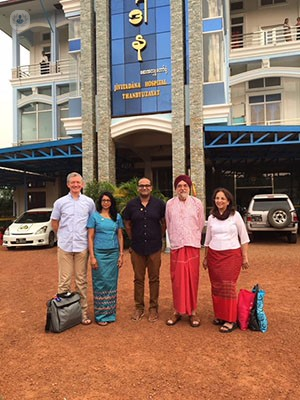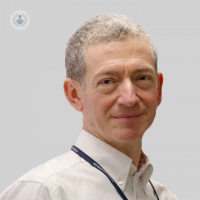Letters from Myanmar: cardiologist Dr Andrew Deaner's mission to Southeast Asia
Autore:Dr Andrew Deaner is one of London’s most distinguished cardiologists, known for resuscitating and treating footballer Fabrice Muamba, whose heart stopped for 78 minutes during a match in 2012. Aside from working as a consultant cardiologist in the UK, Dr Deaner takes frequent trips to Myanmar (formerly Burma) where he works in local clinics and cardiac units to help patients who do not have access to, or who cannot afford, treatment and healthcare.
Incredibly, in a state of two million people, Dr Deaner soon discovered that there was not one cardiologist, meaning that, armed with a stethoscope and portable echo machine, he was one of the first that some of the locals had ever seen.
Here, Dr Deaner shares an extract from his trip to Myanmar where he and his team examined 1,400 patients over five days.

"Several hundred patients had been queuing since 3am"
“In October, I set off for the small town of Thanbyuzayat in Mon State, Myanmar, six hours south of Yangon, Rangoon. I was travelling with four colleagues on ‘mission Burma’. We were a team of two GPs, an orthopaedic surgeon, a dentist and myself, a cardiologist. After two days travelling, we reached our home for the next week. We started work in the town’s small charity hospital. Several hundred patients had been queuing to see us since 3am.
Over the next five days we managed to see a total of 1,400 patients. Armed with a stethoscope and portable echo machine, I personally reviewed 160 cardiac patients. For many I was the first cardiologist they had seen, as there is not a single cardiologist in a state of two million people!
"Type 2 diabetes and hypertension are rife"
Amongst the patients seen were many with advanced rheumatic valvular heart disease, the likes of which I had not seen in 20 years as a cardiologist in the UK. Type 2 diabetes and hypertension are rife so there were plenty of patients with coronary artery disease as well as a variety of other pathologies. The difficulty, of course, was the limited access to definitive treatment. Access both to standard investigations and treatments is severely limited.
Although there are a few cardiologists working in the major cities with some excellent facilities for surgery and catheter based interventions, these were only available to affluent patients. Small numbers of interventions are available for those who were unable to pay but demand hugely out-weighs supply.
So much is needed. I plan to return to do both more local clinics and hopefully some interventional work with colleagues that I visited in Yangon. I hope to help develop local services in Thanbyuzayat and work with local physicians to start an educational programme."
To learn more about Dr Deaner and his work, or book an appointment with him, visit his profile.


